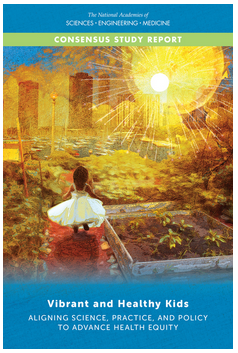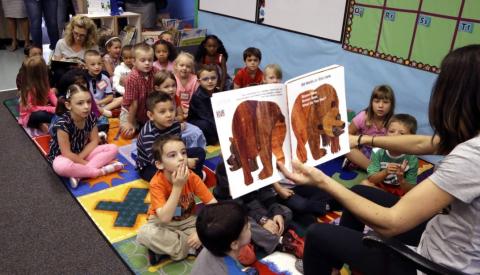25 Years of Service (2) Abortion Rights (1) Activist Groups (1) Addiction (14) ADHD (1) Administrative Data Accelerator (1) Adolescents (2) Aging (19) Agriculture (3) AI (5) AI Hub (2) Air Quality (1) Alaska (4) Alcohol (1) Alzheimer’s Disease (1) Amish (1) Annual Report (2) Anthropology (5) Anxiety (1) Arctic Research (4) Artificial Intelligence (3) Asian Families (2) Associate (1) Asthma (2) Autism (1) Award (24) Babies (2) Big Data (3) Biobehavioral Health (16) Black Families (2) Brain (4) Bullying (1) Business (1) Cancer (1) CCSA (11) Celebration (5) Census (9) Center for Education and Civil Rights (9) Center for Educational Disparities (29) Center for Global Studies (1) Center for Healthy Aging (1) Center for Security Research and Education (4) Center for Social Data Analytics (1) Center for Socially Responsible Artificial Intelligence (4) Center on Education and Civil Rights (2) Child Development (2) Child Health (2) Child Maltreatment (6) Child Maltreatment Solutions Network (5) Child Obesity (6) Child Study Center (2) Chronic Illness (2) Civic Engagement (2) Clearinghouse for Military Family Readiness (6) Climate Change (23) Clinical and Translational Science (6) Cognition (3) Collaborative on Population Aging Disparities (1) College of Agricultural Sciences (12) College of Communications (2) College of Earth and Mineral Sciences (1) College of Education (36) College of Health and Human Development (30) College of Information Sciences and Technology (3) College of Medicine (12) College of Nursing (1) College of the Liberal Arts (37) Communication (5) Communication Arts and Sciences (1) Community (14) Computational and Data Sciences (2) Computational and Spacial Analysis (2) Concussions (1) Conference (10) Consortium on Moral Decision-Making (6) COSSA (13) COVID-19 (27) Criminal Justice (5) Criminal Justice Research Center (7) Criminology (16) CSA (19) CSUA (6) CTSI (43) Data Management (8) Data Resources Hub (1) Data Sources (2) De Jong Lecture (7) Death (3) DEI (3) Democracy (3) Demography (51) Depression (4) Disasters (8) Discrimination (10) Diseases of Despair (1) Dyslexia (1) Economics (4) Edna Bennett Pierce Prevention Research Center (1) Education (20) Education Policy (13) Educational Attainment (4) EIC (8) EIC Podcast (4) Emotion (1) Employment (5) Environment (2) Exercise (1) Expanding Empathy Speaker Series (1) Faculty Fellows (8) Faculty Information (4) Family (9) Family Symposium (20) Fellowship (6) Food Security (4) Forest Resources (1) Foster Care (2) Friends (3) Fullbright Scholars (2) Funding (57) Gender Equality (3) Generational Disadvantages (2) Genetics (2) Geography (4) Geology (1) Geospatial (3) Geroscience and Dementia Prevention Consortium (2) GIS (1) Global Programs (7) Global Warming (5) Government (15) Grief (2) Gun Control (2) Gun Violence (1) Health (7) Health Care (11) Health Disparities (8) Health Equity (8) Health Policy and Administration (4) Hispanic Families (3) Housing (2) Huck (2) Human Development and Family Studies (24) Human Trafficking (1) ICDS (1) IFSE Workshop (3) Immigrants (2) Immigration (30) Impact (3) Indigenous Communities (3) Inequality (2) Inequities (2) Influence (2) Information Technology (4) Innovation (2) Institute for CyberScience (8) Institutes of Energy and the Environment (3) Intentional School Failures (1) Interventions (2) IPDR (1) IRB (2) Job (3) Kinesiology (1) Kinship (3) Labor Exploitation (1) Labor Relations (6) Latino (1) Law (1) Lecture (2) Lerner Center for Public Health Promotion Brief (2) Life Course Exposures (1) Life Expectancy (4) Lloyd Prize (1) Machine Learning (1) Malnutrition (1) Marcellus Shale Natural Gas Development (1) Marijuana (1) McCourtney Institute for Democracy (9) MDI (1) Memory (2) Mental Health (5) Mexico (2) Migration Research (25) Military Families (1) National Security (1) Natural Resources (1) New Methodologies (1) NIH (30) Nominations (1) NSF (21) Nursing (1) Nutrition (1) Nutritional Sciences (1) Obesity (5) Online Aggression (1) Open Access Research (3) Open House (2) OpenMx (1) Opioids (25) OSVPR (10) Overdose (1) PAA (3) PacMAT (1) Parenting (1) Partnership (2) Penn State Cancer Institute (3) Penn State Research (93) Pennsylvania Population Network (6) Pennsylvania Redistricting Advisory Council (1) Philosophy (1) Playing the Archive (2) Podcast (9) POLARIS (3) Policymaking (16) Political Science (11) Politics (12) Population (3) Population Health (6) Population Research (3) Postdoctoral (4) Poverty (1) PPN Brief (2) Pregnancy (3) Preschool (1) Prevention Research Center (4) Prevention Science (6) PRI (100) PRI Affiliate (3) PRI Associate (23) Private Services (1) Professor (1) Promotion Announcement (1) Proposal (7) Protocol (1) Psychology (12) Public Health Sciences (3) Public Policy (10) Public Services (1) Qualtrics (1) QuantDev (4) Race (1) Racial and Ethnic Minorities (5) Racial Disparities (8) Racism (1) RDC (1) Recovery (1) REDCap (1) Refugees (1) Relationships (1) Research (28) Research Evidence (8) Research-to-Policy Collaboration (4) RISE Conference (1) Rock Ethics Institute (3) RPC (1) Rural Communities (12) Rural Health (8) Rural Sociology (14) School (17) School of Public Policy (2) Science Policy (1) Security (2) Seed Funding (29) Segregation (14) Self-control (2) Seminar (7) Siblings (1) SJRC Equity Fellows (1) Sleep (5) SLEIC (1) Smoking (4) Social Data Analytics (2) Social Inequity (2) Social Justice (3) Social Media (4) Social Science (63) Social Stressors (1) Sociology (50) Software (3) Special Education (12) Spring Gathering (3) SRC (1) SSRI (79) SSRI Affiliates (3) SSRI Associate Directors (1) SSRI Cofunds (25) SSRI Director (5) SSRI Staff (3) Stress (4) Substance Abuse (14) Substance Use (7) Suicide (2) Support Resources (2) Survey Research Center (1) Symposium (2) Teams (1) Teens (4) Texas (1) Transportation (1) Twitter Data (5) Unemployment Rate (3) University Policy (2) Veterans (2) Violence (1) Visiting Scholar (1) Water (6) We Are (2) Why Social Science? (21) Womens Health (2) Womens Studies (1) Work Conditions (1) Workforce Development (1) Working Groups (2) Workshop (10)
White children are especially likely to be overdiagnosed and overtreated for ADHD, according to a new study
By Paul L. Morgan, Eberly Fellow, Professor of Education and Demography, and Director of SSRI's Center for Educational Disparities Research, Penn State, for The Conversation White children are especially likely to be overdiagnosed and overtreated for attention-deficit/hyperactivity disorder during…
Research finds flawed federal monitoring of students of color with disabilities
Current federal legislation and regulation that monitors for significant disproportionality in special education may be contributing to children of color with disabilities failing to receive treatments and services to which they are legally entitled, according to a Penn State College of Education…
Morgan's research cited in report on using science and policy to advance health
Paul Morgan, director of the Center for Educational Disparities Research and PRI affiliate, and his research team's finding on disparities in disability identification are repeatedly cited in Vibrant and Healthy Kids, the new National Academies of Science, Engineering, and Medicine report…
Study: Black students less likely to be identified as having disabilities
Black and Latino students in the South are less likely to be identified as having learning disabilities when compared to their White peers, according to a study that will be published in a forthcoming issue of Exceptional Children. The most stark results included the number of Black students who…
New studies challenge the claim that black students are sent to special ed too much
Column by Jill Barshay Decades of research have documented that students of color, particularly black children, are disproportionately classified by schools as having disabilities. In 2016, 12 percent of black children across the nation received services at school for disabilities ranging from…
Children’s race, not disability status, may predict more frequent suspension
Suspension is one way schools discipline students, but the high number of and disparities in suspensions in the U.S. has sparked controversy and policy debate. New research, led by Paul L. Morgan, Harry and Marion Eberly Fellow, professor of education and demography, and director of Penn State…
Morgan featured in “New Yorker”
SSRI co-fund and CEDR director Paul Morgan’s research has been featured in the “New Yorker’s” article, “Georgia’s Separate and Unequal Special-Education System.” Morgan’s research focuses on the underrepresentation of children of color in special education. He argues that environmental factors like…
Disparities in education studies most read
Paul Morgan, director of the Center for Educational Disparities Research, has co-authored several studies that were the most read articles in two different publications. Three of his team’s empirical studies were the most read articles published in Educational Researcher, one of the education field…
News Topics: Center for Educational DisparitiesSpecial Education
Morgan's research on executive function appears in Hechinger Report
Executive function — a sort of air traffic controller of the brain — has been one of the hottest topics in education circles over the past 15 years. Yet experts disagree over what it is exactly, to what extent it really causes academic problems and whether anything can be done to improve…
Research on racial disparities in disability identification cited by the Brookings Institution
Three Penn State researchers and their colleague replicated an earlier but provocative study that found that minority children are less likely to be identified as having disabilities as they attend U.S. schools. Their work is now being cited in a new analysis by the Brookings Institution, which…
Morgan's research featured recently in NYT & WSJ
CEDR director and PRI affiliate Paul Morgan's research was recently reported on in both the New York Times and the Wall Street Journal and details why the research should be resulting in changes in federal-level educational policy. Additionally, Morgan gave the Naomi Zigmond Plenary…
Morgan's study named fourth most read in Educational Researcher
The American Educational Research Association (AERA) recently announced their most read education research articles of 2017. Paul Morgan, director of the Center for Educational Disparities Research and professor of education, and his research team had the fourth most read study in the publication…









